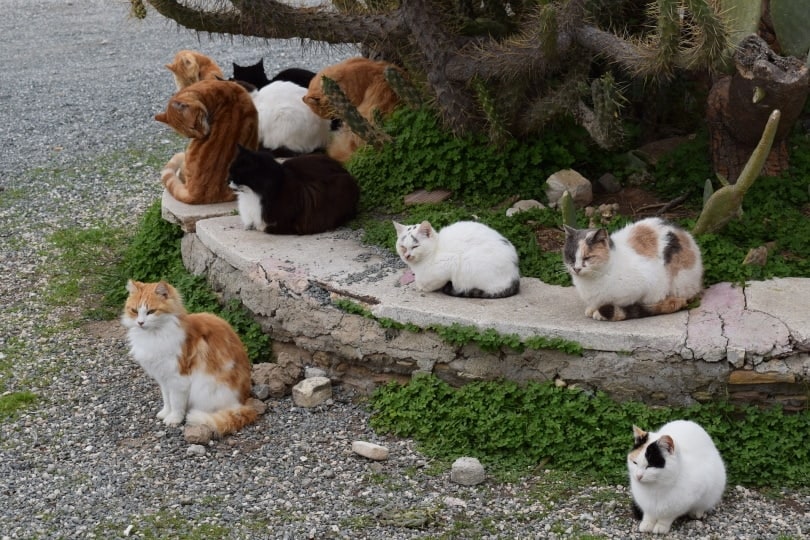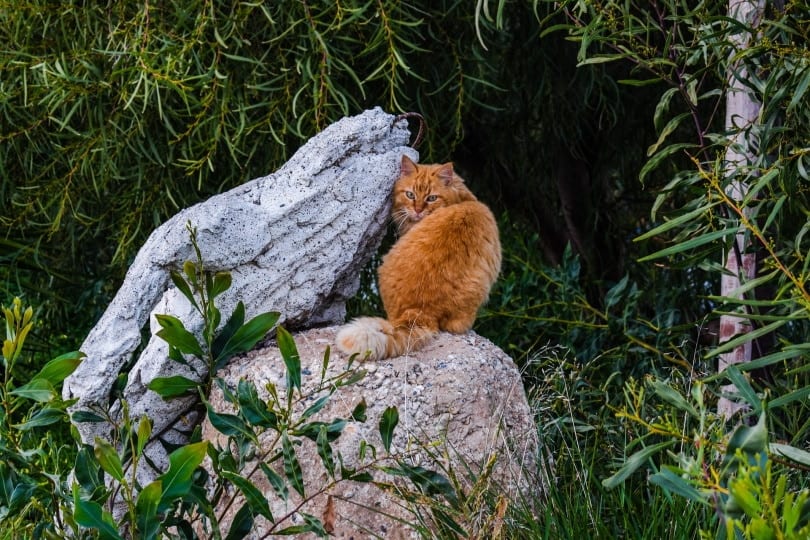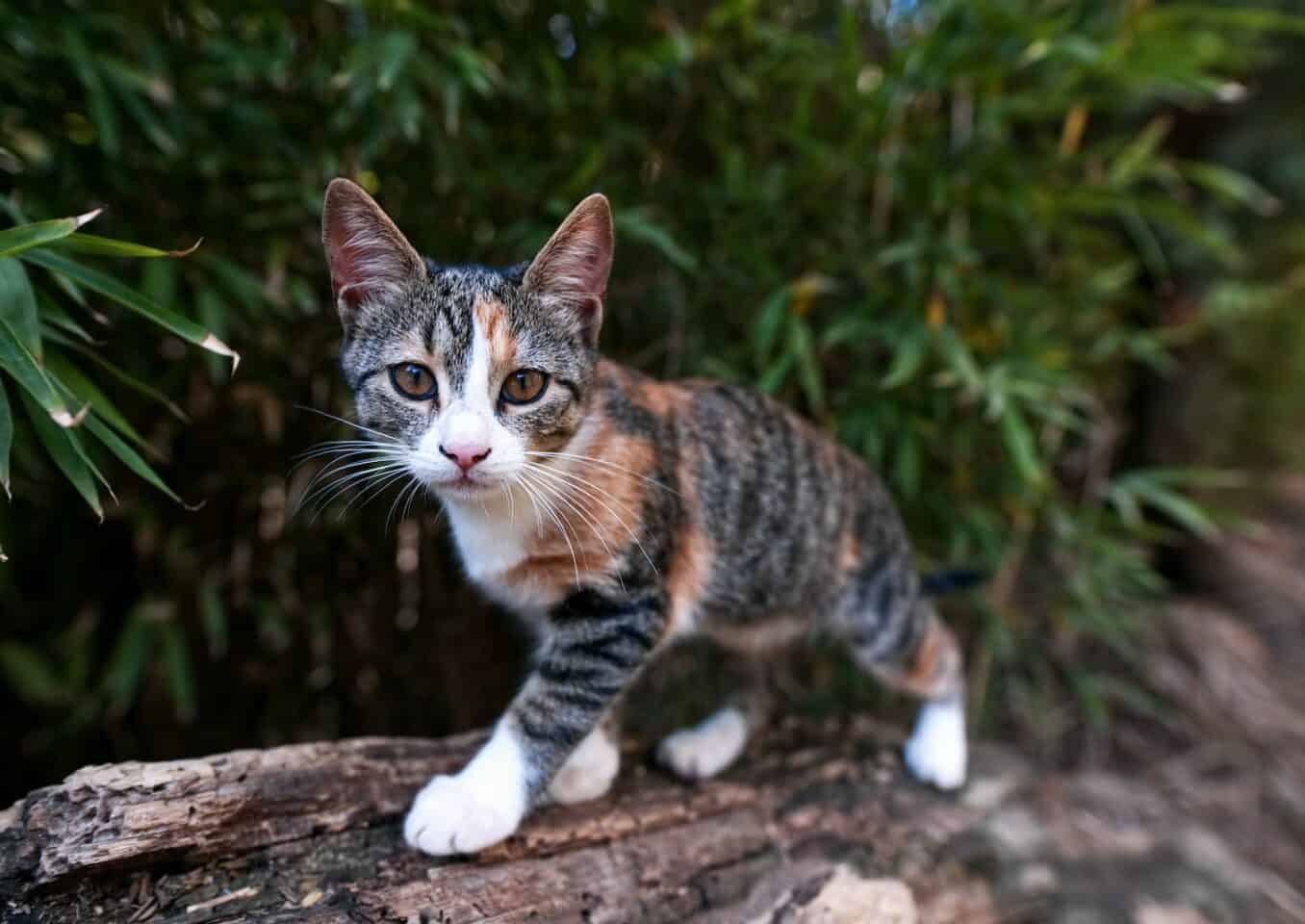Feral cats have never learned to socialize with humans and often cause problems for people. Some animal groups are working to help these cats to live a healthier and friendlier existence by working with Feral Cat Programs.
Feral or Lost?
Feral cats are wild cats. They have either been abandoned by owners at an early age or have been gone from a home so long that they have learned to live in a feral group on the streets. Because these cats are not spayed or neutered, even more feral cats are born into this type of society.
On the other hand, a lost cat knows people and seeks their companionship. They are not used to fending for themselves and won’t survive long on the street without them. Often lost cats hang around suburban areas trying to get food and warmth from homes and businesses.

How to Solve the Problem
People are concerned about the increasing epidemic of feral cats on the streets. Because they are wild and untamed, these cats have been known to urinate everywhere (marking their territory), make noisy fights with other cats, spread infection, and upset trash cans looking for food.
Often they live in community groups called “colonies.” These cats usually live together in areas that are known to be kind to them. It could be the back yard of a person who is willing to feed them or outside a business where they throw out scraps to keep them fed.
The ASPCA and the Humane Society has come up with some Feral Cat Programs to help these cats. One program is the Trap-Neuter-Spay-Return program. Much like the catch-and-release program utilized by fishermen, feral cats are carefully rounded up. They are then taken to a facility where they are sterilized. Then, they are released back into their community environment.

Much like this program is the Trap-Neuter-Vaccinate-Return program. The animals are sterilized, but animal professionals also take it upon themselves to look the cats over and vaccinate them properly against common diseases they may encounter on the street.
These feral cat programs are further enhanced by volunteers who are committed to monitoring and taking care of these cat colonies. The benefits are:
- Longer life span for feral cats
- Fewer disruptions in society
- Fewer unwanted cats on the streets
These cats also make great mousers to keep down the rodent population. Some have proposed eradicating feral cats but that won’t solve the problem in the end. For one, new cats will come along to fill the void left by the ones taken. Secondly, it is easier to get volunteers to care for the existence of these animals then to round them up for euthanization.
Feral cats are not able to be tamed but they can be given a chance at a healthy existence through friendly feral cat programs. These programs really do help cats in wild situations.
Featured Image Credit: Unsplash
